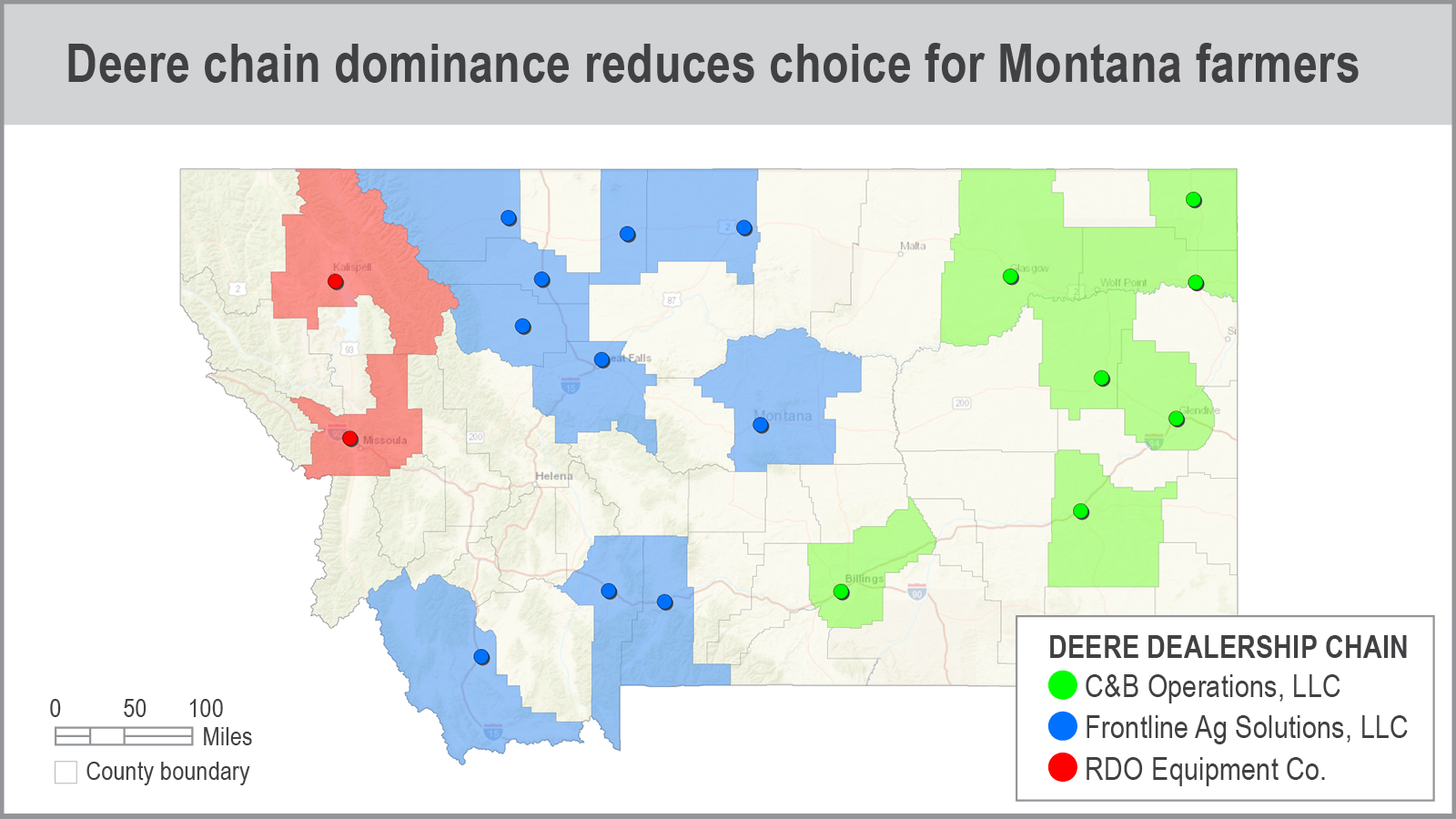Every week there are too many developments in the world of repair for any mere mortal to keep track of. Fortunately, the folks over at the Fight to Repair newsletter are here to help: recapping the most important repair news for iFixit readers. As a special offer, iFixit.com readers can claim a free, 60-day premium membership to the Fight to Repair newsletter. Visit fighttorepair.substack.com/ifixit to claim your premium membership!
The US Department of Justice (DOJ) just weighed in on a class-action lawsuit against John Deere, calling out its monopolistic repair practices. The DOJ wrote in strong support of farmers, and the statement could be a turning point in the case.
Deere’s repair monopoly is old news to farmers in Wyoming, who have been on the hunt for old tractors—not because they’re hipsters, but because of all the problems associated with newer, software-reliant machines. Plus, spare parts are much more easily available for old machines.
Wyoming farmers aren’t alone; there are countless other cases. Jim Gerritsen is a tomato farmer from Maine who spoke to Congress this past year during right to repair hearings and runs his farm on 1970s equipment to ensure he can keep fixing it. Some farmers are even exploring the idea of open-source tractor software.
DOJ Urges Court to Allow Antitrust Case to Move Forward
But living in the past and in the wild west of open-source software aren’t the only ways out. Farmers across the country tried something new last year: They sued John Deere. Thirteen separate cases against Deere have been consolidated into a single class-action case, now under the jurisdiction of a federal court in Illinois.
Large corporations are especially adept at slowing or stopping cases like these—look no further than Massachusetts, where an overwhelmingly popular referendum has been tied up in court for two years by a federal lawsuit filed by automakers.
Accordingly, the DOJ has urged the Illinois court to allow antitrust litigation against Deere to proceed. They state that Deere is monopolizing the repair of its products by:
- Monopolizing the market for repair (if the only repair shop within 50 miles of you is a Deere dealer, chances are you’ll be paying whatever price they say)
- Monopolizing maintenance services
- Designing equipment to require company-controlled software for the diagnosis of problems and for maintenance functions.
“Repair restrictions,” according to the DOJ’s statement, “can drive independent repair shops out of business by raising their costs or denying them key inputs, which, in turn, leaves consumers with fewer choices.” Hear, hear.

The statement represents the formal position of the US government. It’s clear that the federal government under the Biden administration is taking a strong stance on antitrust enforcement, with a good deal of attention to repair restrictions and service monopolies.
The gesture by the DOJ also comes while lawmakers in Colorado (and 10 other states) are introducing right to repair bills. These protections would force manufacturers to provide the tools, software, parts, and manuals necessary for farmers to make their own repairs, allowing them to avoid steep labor costs and delays that imperil profits. Proponents of legislation aren’t waiting around for these class action cases to solve the problem—they want laws put in place to solve their issues immediately.
But a law only goes so far until it is enforced by regulators or courts. If this lawsuit moves forward in favor of the farmers suing Deere, it will send a clear message to companies that there are consequences for restricting repair.
Other News
Clothing
Fiber and textile material that is worn for style, safety, and protection from the elements.
View Device- Wheelchair repair law takes effect: Colorado’s power wheelchair repair law is already breaking down barriers to repairing equipment. With access to settings and diagnosis software (the same that technicians use), users’ frustrating, weeks-long repair experiences could be a thing of the past.
- Donated clothing polluting Kenyan communities: It’s not just e-waste that has life-and-death consequences—a new report has found that one-third of all donated clothing shipped to Kenya in 2021 was “plastic waste in disguise” leading to environmental and health problems for local communities. The standard method of burning these materials is causing serious pollution in the country while subjecting those picking through the waste to toxic fumes.
- First repair café opens in Louisiana: This past summer, community members set up a repair café in New Orleans. If you’re in the area (or know someone in the area), future events are scheduled for 3/13 and 3/29.
- PhD opening in UK to research repair cafés: The University for the Creative Arts in Farnham, UK, is looking for a PhD student to research repair cafes. The university offers a three-year studentship, in conjunction with UCA’s Centre for Sustainable Design, led by Professor Martin Charter. Read the job description if you’re interested.






0 Комментариев